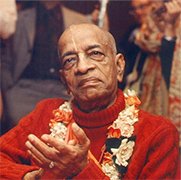"Jesus is the only way!" Not an uncommon cry, in this day and age. Many Christians believe that Christ proclaimed himself to be the "Way, the Truth and the Life," and that "no one shall come to the Father but through me." On this basis they often find it difficult to accept the validity of other faiths. Although the crusades may be a thing of the past, we still find many evangelical Christians seeking to convert others to their beliefs, thereby saving them from the eternal damnation that will ensue from following anything else.
The Catholic Church takes less of a hard line and considers itself "inclusivist", in that it accepts that there is at least some truth in other faiths, but even their official position, as endorsed by the Pope, is that religions other than Catholicism are "gravely deficient" and that their rituals constitute an "obstacle to salvation". Basically, they believe that those not following strict Catholicism can expect a lengthy, perhaps eternal, sojourn in either Purgatory or Hell.
Of course, there are those who would argue that Jesus never took such an exclusive position, that his words have been misrepresented or perhaps mistranslated. But even if we do accept that he made the above statements about being the "only way", does it have to mean he was condemning everything else? Is Christianity incompatible with other religions? Krishna followers certainly do not think so.
Followers of the Hare Krishna movement have much respect and admiration for Jesus. The movement's founder, Srila Prabhupada, considered him a great spiritual teacher, calling him "The representative of God", "Our guru", "the best son of God". Prabhupada would often say to Christians that he was not seeking to convert them to another faith such as Hinduism, but was merely encouraging them to become "better Christians".
How then did he reconcile the apparent exclusivity of the "only way" quotes? Followers of Krishna consider it essential to have a spiritual teacher, such as Jesus, if one desires to approach God. Spiritual practices require a teacher as much as any discipline. We are all in ignorance in this world, not knowing where we have come from, why we are here, who is God and how we can reach Him and become free of all suffering.
It is impossible to answer these questions simply by our own speculative endeavors; we need the help and guidance of an authorized spiritual teacher who has personally realized the truth; who knows God. This is explained in the Vedas, the Sanskrit texts that form the basis of Krishna consciousness. In Vedic terms, then, Jesus was a spiritual guide or guru, a God-realized soul who came from God to teach us the truth.
If Jesus is seen in this light, as an authorized spiritual master, then we can make sense of the above statements attributed to him. In addressing the people who came to him, he was making it clear that without his guidance they would not be able to reach God. But is this the case for all people in all places and at all times? Is that what Jesus meant? Would the unlimited and all-powerful God he was describing have only one representative in one place on the earth? Even an ordinary leader such as the Prime Minister has many authorized representatives, what then of God?
Essentially, there is no difference between the Vedic teachings, which have been delivered by many spiritual masters down through the ages, and those of Jesus. As Prabhupada put it, "This life is not the all-in-all, we are God's eternal loving servants, prepare now for your eternal life with the Lord". And in the words of Jesus, "Do not build your house on sand, prepare to meet your God, love the Lord your God with all your heart, all your soul and all your might".
As well as the similarity of teachings, Prabhupada suggested that the name Christ and Krishna have a close affinity. This is because the Greek root of the word Christ, meaning "anointed", is Christos, and another form of the name Krishna is Krista, very similar to the Greek word. Prabhupada suggested that Christos was the "Greek version of Krishna". (Krishna is a Sanskrit name of God). "Therefore," he argued, "if you chant either the name of Krishna or of Christ you will get the same benefit of approaching God".
One might ask why Prabhupada brought Krishna consciousness to the West if it is basically the same as Christianity. In a conversation with a Christian monk, who asked this question, he said that the problem was that very few Christians today follow Christ's instructions. The monk agreed, and Prabhupada went on to say, "what then is the meaning of the Christians' love for God? If you do not follow God's orders, then where is your love? Therefore we have come to teach what it means to love God: if you love Him, you cannot be disobedient to his orders. And if you're disobedient, your love is not true. All over the world, people love not God but their dogs. The Krishna consciousness movement is therefore teaching people how to revive their forgotten love for God."
Since it's coming to the West in the late 1960's, the Hare Krishna movement has attracted many thousands of Christians who have discovered that the spiritual practices taught in the movement have simply enhanced their love for Jesus Christ, and also their ability to follow his directions.
